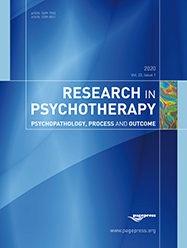Sense of meaning as a predictor of long-term therapy outcome in psychiatric inpatients: results of a one-year follow-up
Meaning and long-term therapy outcome
All claims expressed in this article are solely those of the authors and do not necessarily represent those of their affiliated organizations, or those of the publisher, the editors and the reviewers. Any product that may be evaluated in this article or claim that may be made by its manufacturer is not guaranteed or endorsed by the publisher.
Authors
Identifying predictors of long-term therapy outcome is crucial in shaping effective therapy programs. This study examined sense of meaning in life, religiosity, and spirituality as potential predictors for long-term therapy success following psychiatric-psychotherapeutic inpatient treatment. A total of 127 patients from a psychiatric clinic in Switzerland were included. Standardized self-assessed questionnaires were administered on admission, at discharge, and at a one-year follow-up. The influence of meaning in life, religiosity, and spirituality on the course of depressive symptoms was assessed. Sense of meaning was identified as a significant positive predictor for therapy outcome one year after discharge. Positive associations between sense of meaning, religiosity, and spirituality suggest that there may be indirect effects of religiosity and spirituality on long-term therapy outcomes as well. Boosting a sense of meaning in psychiatric inpatient therapy might enhance long-term treatment outcomes. Possible indirect effects of religiosity and spirituality need further investigation.
Clinic SGM for Psychiatry and Psychotherapy, Langenthal, Switzerland.
How to Cite

This work is licensed under a Creative Commons Attribution-NonCommercial 4.0 International License.






